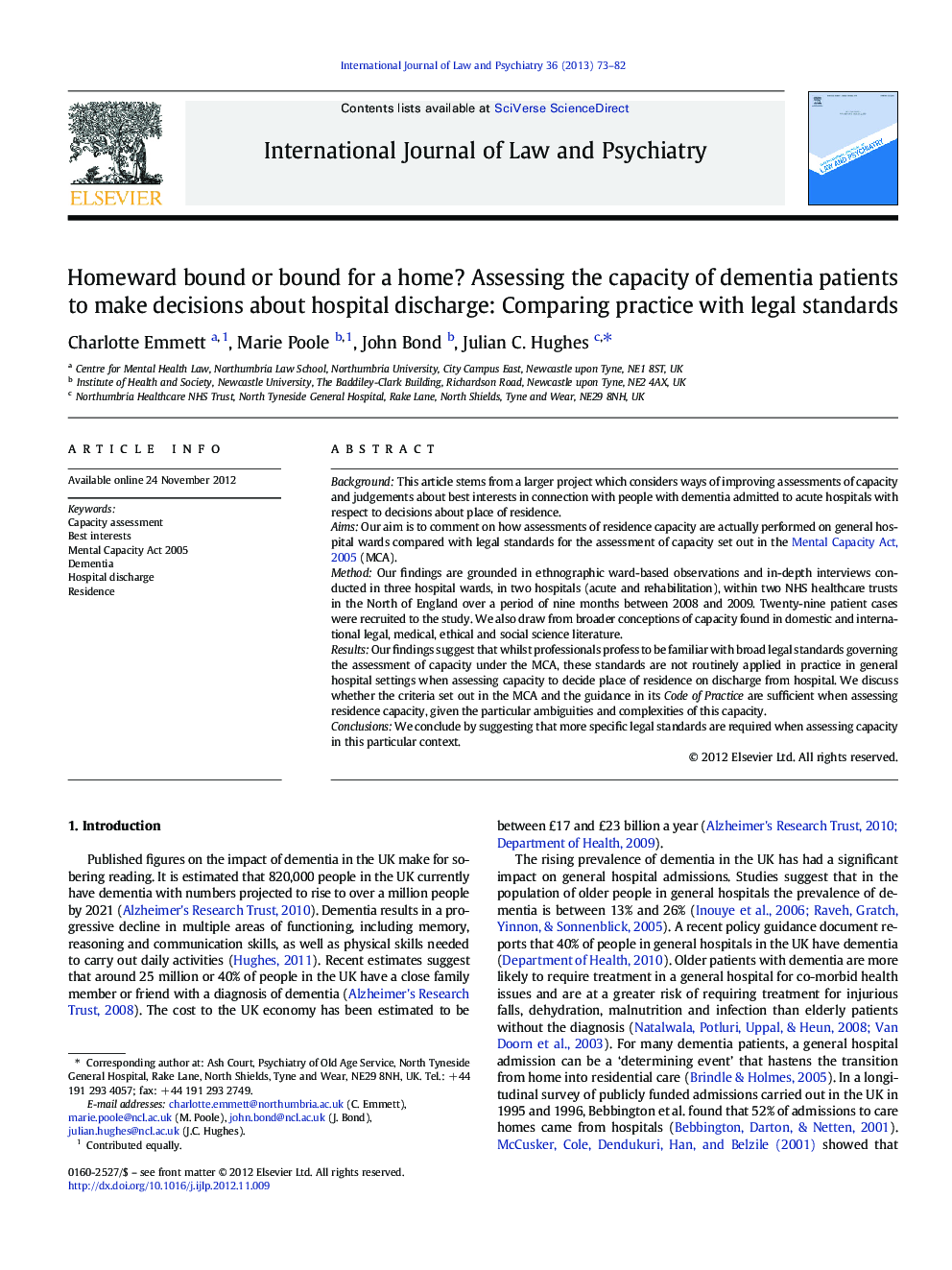| Article ID | Journal | Published Year | Pages | File Type |
|---|---|---|---|---|
| 100904 | International Journal of Law and Psychiatry | 2013 | 10 Pages |
BackgroundThis article stems from a larger project which considers ways of improving assessments of capacity and judgements about best interests in connection with people with dementia admitted to acute hospitals with respect to decisions about place of residence.AimsOur aim is to comment on how assessments of residence capacity are actually performed on general hospital wards compared with legal standards for the assessment of capacity set out in the Mental Capacity Act, 2005 (MCA).MethodOur findings are grounded in ethnographic ward-based observations and in-depth interviews conducted in three hospital wards, in two hospitals (acute and rehabilitation), within two NHS healthcare trusts in the North of England over a period of nine months between 2008 and 2009. Twenty-nine patient cases were recruited to the study. We also draw from broader conceptions of capacity found in domestic and international legal, medical, ethical and social science literature.ResultsOur findings suggest that whilst professionals profess to be familiar with broad legal standards governing the assessment of capacity under the MCA, these standards are not routinely applied in practice in general hospital settings when assessing capacity to decide place of residence on discharge from hospital. We discuss whether the criteria set out in the MCA and the guidance in its Code of Practice are sufficient when assessing residence capacity, given the particular ambiguities and complexities of this capacity.ConclusionsWe conclude by suggesting that more specific legal standards are required when assessing capacity in this particular context.
